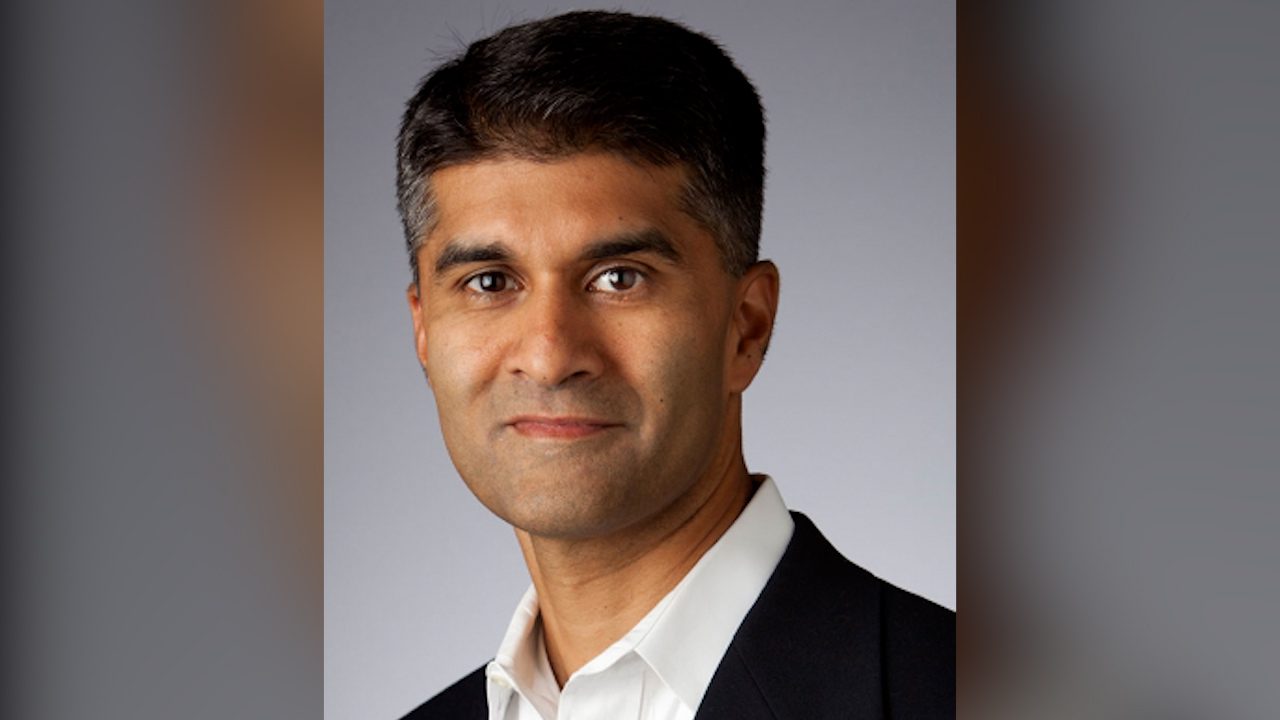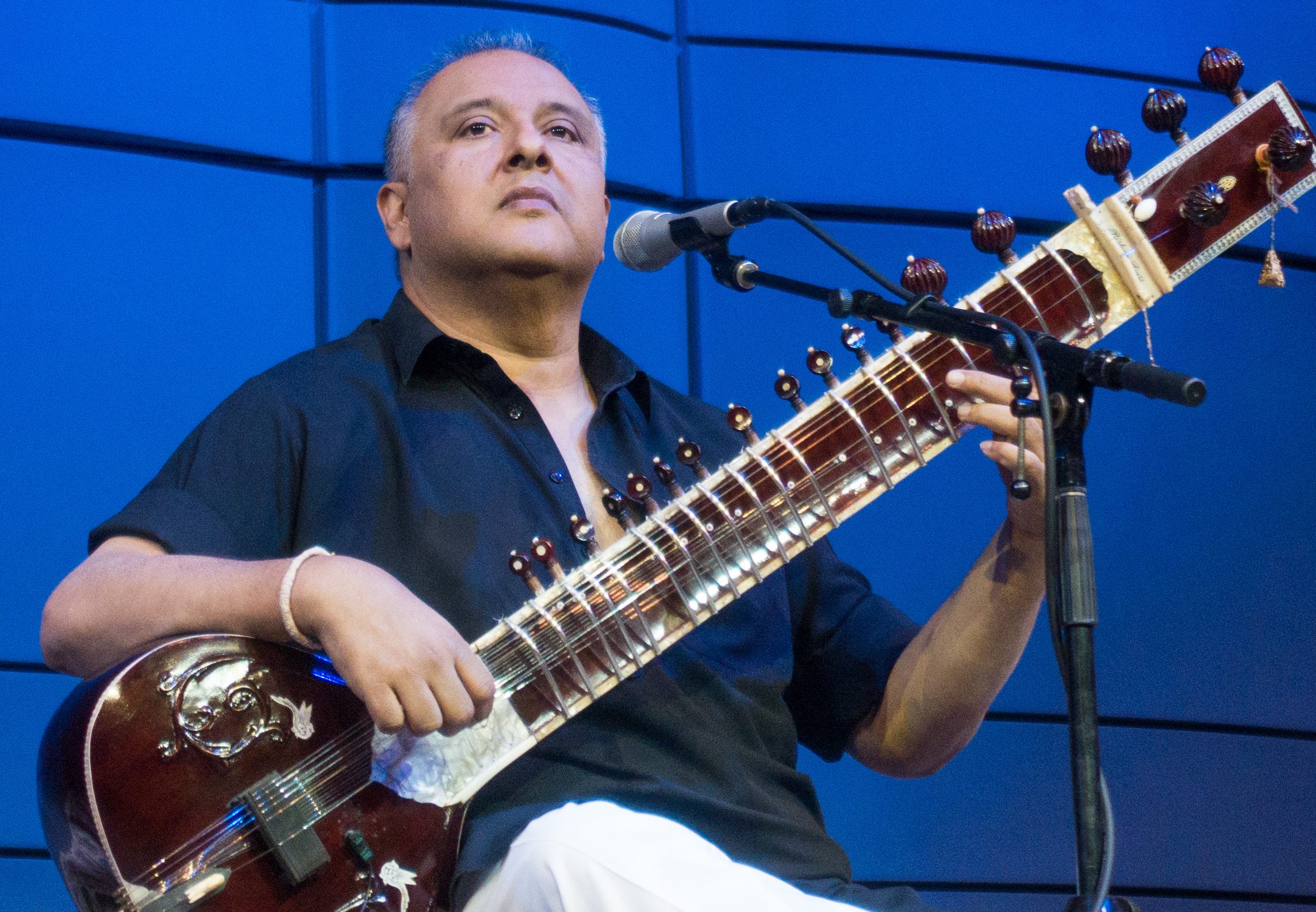(September 28, 2021) Last week, US President Joe Biden announced that he was nominating Indian American Ashish Vazirani to a key national security role at the Pentagon. Slated to be appointed as Deputy Under Secretary of Defense for Personnel and Readiness, Vazirani will be one of the 40 plus Indian Americans working in the Biden-Harris administration. Vazirani, who is currently the Principal of A2O Strategies, LLC, had earlier served in active duty with the US Navy as a submarine officer.
Coming from a military family, Vazirani had served in the Navy as Lieutenant from 1986 to 1993 before switching to a management consultant role. He spent 22 years with leading high tech and pharmaceutical companies such as Roche Pharmaceuticals, Analytika, Dendrite, MarketBridge, ZS Associates and National Academy of Sciences, where he worked to create transformational change while delivering customer-centric solutions and profitable growth.
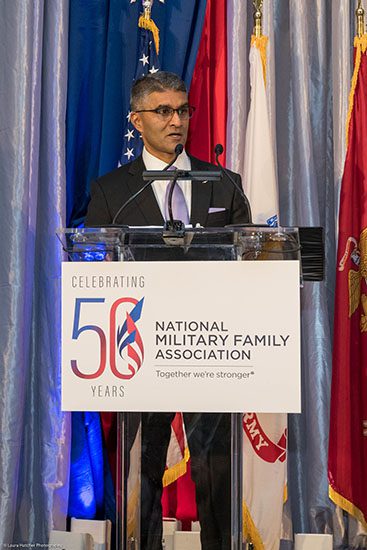
Indian roots
Vazirani, who was born in India, moved to the US at the age of 3, where his step father, John Fales Jr, was a Vietnam-era Marine who had been wounded in combat. He went on to get his Bacherlor’s degree in Mechanical Engineering from Vanderbilt University, Nashville, before his Masters in Engineering from McCormick School of Engineering at Northwestern University in Illinois. Following this, Vazirani joined the US Navy as submarine officer in 1986 where he served until 1993.
By 1993 he had enrolled for an MBA at Kellogg School of Management and then embarked on a career as a management consultant with ZS Associates. Soon jobs with other notable companies such as Roche, Dendrite, and MarketBridge followed where he helped these technology and healthcare companies transform their GTM Strategy.
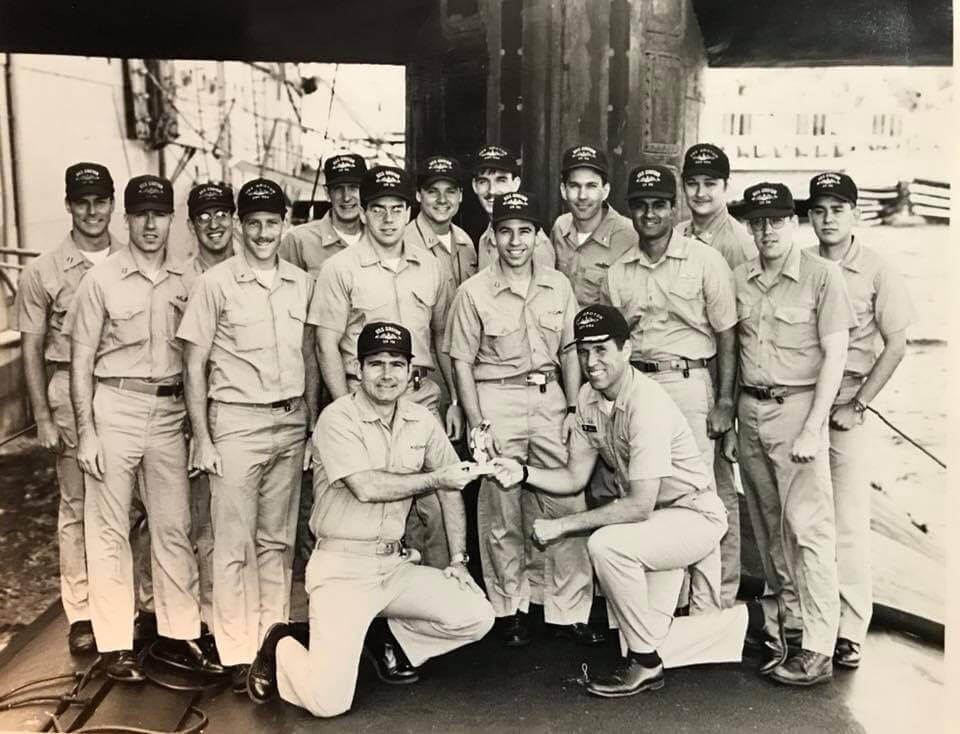
Ashish Vazirani from his US Navy days
According to his LinkedIn, two decades in, he realized that he was ready to pursue something new and wanted to focus on his priorities: Faith, Family, and Country. That was when he got the opportunity to work with the Armed Services YMCA (ASYMCA) and National Military Family Association (NMFA). In 2017 when he was appointed as Chief Development Officer at ASYMCA, Vazirani took over the organization’s financial growth by developing lasting engagement with donors and helped drive programs for young men and women of all five Armed Services (Army, Marine Corps, Navy, Air Force, and Coast Guard) and their families.
In 2017, this Global Indian also joined A2O Strategies as Principal, where he provides advisory services to commercial and non-profit, high growth and large enterprises, on the development, implementation, and execution of growth strategies.
A bend in the road
Two years later, in 2019 Vazirani took over as Executive Director of NMFA taking over from Joyce Raezer. This was in addition to his role at A2O. The former Navy Lieutenant’s experience and the fact that he came from a military family himself – his father and son are both marines – made him the right fit for the job. According to Vazrina, his father continued in public service even after he left the military when he became an advocate for sensory-disabled veterans like himself. All of this urged Vazirani to do his bit for military families as well. In an interview with Military Families, Vazirani had said, “I think when I reflect on the time that I was in the submarine force, when we went to sea as a crew of 120 something people, one, you just recognize the importance of teamwork and the importance of relying on individuals who have expertise in particular areas and how those experts come together and coordinate as a team. Because you can’t just get the mission done by yourself.”
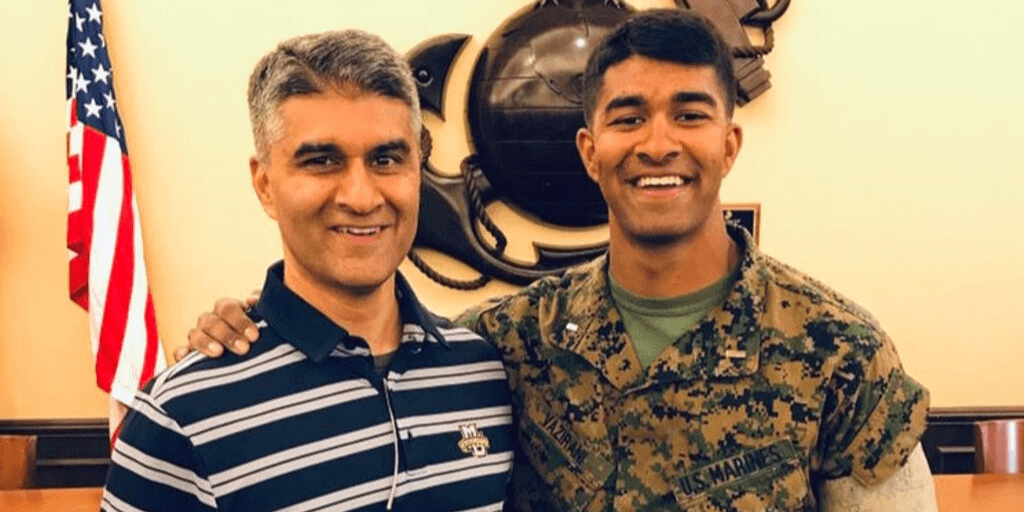
Ashish Vazirani with his son
He provided strategic and operational oversight and direction for all aspects of NMFA’s advocacy and programming to support military families. During his tenure, NMFA regained its four-star charity rating and expanded programming, included a child care fee relief program.
In April 2021, he also joined the Global War on Terrorism Memorial Foundation as a member of the board of advisors where he continues to serve.
Family ties
While Vazirani’s stepfather was a Vietnam-era marine, his son is an actively serving marine as well. Vazirani grew up in Maryland where he and his wife Deborah continue to live.
